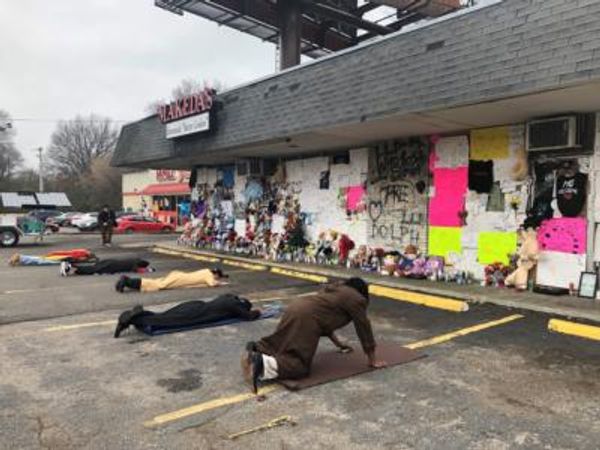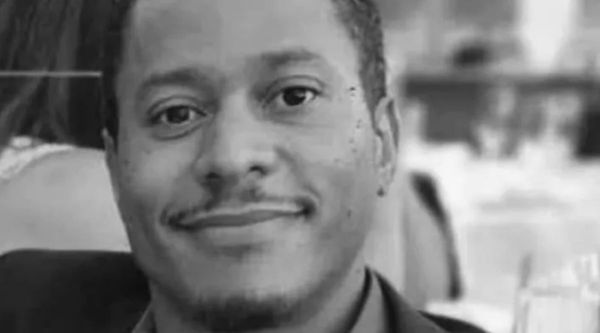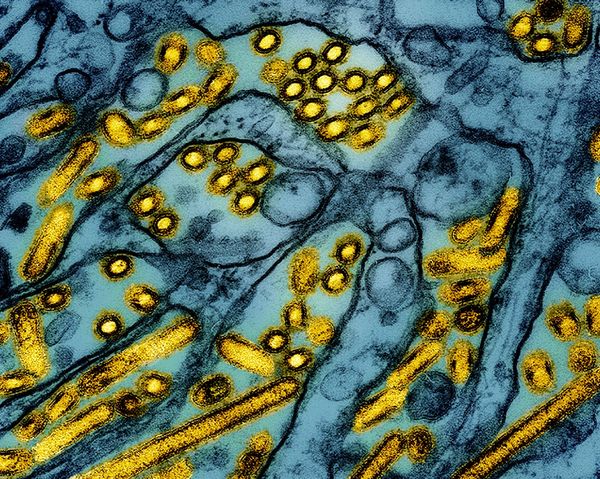
This story is part one in a series. For the full series, go here.
Note: this story contains references to suicide, violence, homophobia and transphobia.
Members of China’s LGBTQIA+ community claim they have been sent to government-sanctioned re-education camps. Some say they spent years in the camps and experienced forced conversion therapy, a controversial process of attempting to coerce queer people to become heterosexual.
Survivors tell Crikey conversion therapy was carried out in “militarised camps” where they claim they suffered forced electric shock treatment, beatings and other abuse. Some say they were kidnapped and brought to the camps; others escaped, only to be shunned by their families to live in fear and solitude.
Survivors provided testimonials to Crikey that when matched with satellite images and government websites linked the camps to the Chinese Communist Party (CCP).
Although the CCP removed homosexuality from its list of psychiatric illnesses in 2001, it hasn’t directly banned the use of so-called conversion therapy.
Nikolaevna says she was sent to a re-education camp named Shandong Wangkang Education Training School (山东网康教育培训学校) in 2019 for “gender inconsistency”.
“I was suspended from school, drugged and imprisoned in Wangkang, and spent more than two months there that I will never forget,” she tells Crikey. She experienced forced “sleep deprivation” and three rounds of “electrotherapy treatments”.
“They treated us like animals,” she says. “After more than two months, I couldn’t bear it any more. I smashed a window, took some broken glass and tried to commit suicide.”
Nikolaevna says “the only reason she didn’t die there” was because a relative convinced her parents to take her out. But upon her release, she was put under “house arrest” for several months.
Four years later, Nikolaevna still struggles with emotional vulnerability: “For a long time later, I couldn’t stop feeling sick when I saw camouflage uniforms. I don’t want to go to any closed places because I get claustrophobic and my main problem is that there is no way to love or trust or open up to anyone.”
She says she doesn’t have any images from the school, “only scars left in my heart”.
On its website, the Shandong Wangkang school claims to be a facility that addresses “internet addiction” for 12- to 30-year-olds. It also says it can treat children with “autism”, “rebellion” and “puppy love”, a term used for teenagers in romantic relationships.
The school did not respond to requests for comment.
Survivors’ horror stories
While most facilities don’t publicly state that identifying as LGBTQIA+ is a reason to send a child there, survivors tell Crikey the reality is otherwise.
Qian Ning claims she was beaten before being forced to go to a facility named Nan Ying Vocation High School (南英).
“When I came home for the new year, three people in police uniforms came into my house and said that I was suspected of network fraud and asked me to cooperate with an investigation,” she tells Crikey.
“They knocked me down before I could speak, handcuffed me, forced me into their car and took me to the camp. I cried for help, but it was useless. My parents just stood aside.
“[A senior staff member] asked me if I wanted to be a ‘fake mother’, like to wear women’s clothes, and still have long hair. He said it was ‘disgusting’. Then he explained to me that network fraud was not the reason why the Public Security Bureau arrested me.”
Qian says she wanted to resist, but she was handcuffed: “He and several other people kicked me hard on the ground, and held me down. They said ‘if I was dishonest, I would be beaten’. Then they shaved my hair so I was bald, took off my shoes, socks and underwear.”
Qian didn’t speak after that — she says she was afraid of the pain and “begged for mercy”.
“They took me to the dormitory, handcuffed me to the iron bed frame,” she says. “They made me stand all night, asking me to reflect on my mistakes.”
Qian says that when she stood there in the middle of that winter night, her feet were “cold and numb”. When she wanted to sit, a monitor beat her, so she stood up “honestly” until dawn. She says everyday life in the camp was like “military training”, only the purpose wasn’t to train your body, but to “make you suffer”.
During her time at Nan Ying, Qian says she met a man with a broken hand who had been severely beaten by the guards. He told Qian that when he went to the toilet “he urinated blood”. But Qian says that was a “blessing in disguise for him” as when his parents saw his state, they became angry that the school’s situation was different from what they thought, and released him.
“If I had to choose, I would definitely have rather been beaten like that than to stay there for two years,” she says.
Qian says that one night, three students tried to escape. One was successful, but two were caught by the guards.
“The headmaster personally beat those two people severely with a belt, and then shocked them with an electric baton, while we knelt beside them and watched,” she says. “But even so, people kept running away. During one year, eight people tried to escape in various ways, and five were caught.”
The camp where Qian says she was detained is in Changsha, in China’s Hunan province. She says there were more than a dozen “special training schools” like that in Changsha alone, and each had an average of 100 students every year.
On Baidu, China’s version of Google, the senior staff member who Qian claims mistreated her is listed as a shareholder and legal representative of at least 13 other facilities.
Parents ‘wanted her to die’
Dana Aylmer tells Crikey that when her parents found out that she was transgender, they “wanted her to die” so that she wouldn’t be a “bad example” for her younger siblings.
“My father found my address and brought a group of people disguised as home repair workers to my home,” she says. “They broke down my door.”
Dana hid in a storage room, a memory she “vividly” remembers as the most frightening of her life.
“After they looked around, they thought I wasn’t home,” she says. “I went to the underground bicycle garage in my rented house. It connects to the entire neighbourhood — I believe they didn’t know that. I saw that they were still at the door of my apartment waiting for me to come home, so I left through the underground garage and left behind many things.”
One of those items was Dana’s former boyfriend’s jade pendant. “He said it’s part of him, he wore it since he was a little child,” she says.
Now Dana lives in solitude in a rural part of China where she fears for her life and has no communication with her family.
CCP-sanctioned camps
This investigation found that facilities outed by survivors to Crikey as re-education camps are connected to and endorsed by the CCP.
Daria Impiombato, an analyst from the Australian Strategic Policy Institute (ASPI) who provided research for this investigation, has drawn links between the Zhaoshan Quality Education School (昭山素质教育 or 昭山素质教育学校) and the Chinese government.
“On the homepage, a banner boasts that the school runs correctional classes under the supervision of the Education Bureau — which in the case of this school would be the Xiangtan Education Bureau (湘潭市教育局) in Hunan Province,” Impiombato tells Crikey.
One of the main staff members listed on the school’s website is He Xinguo (何新国), a CCP member and director of the school’s “psychological expert group”. The website claims he’s “transformed” more than 13,000 children.
Impiombato says He Xinguo is also listed among the staff of two other clusters of schools: Adolescent Growth Education and Training Centre (青少年成长教育培训学校) and Xiande Youth Inspirational Education (贤德青少年励志教育).
Another individual, Chen Lu (陈露), is also listed on several facilities’ websites. He is listed as the principal of Youth Growth Education Training School (青少年成长教育培训学校) and a psychologist for Inspirational Education for Virtuous Youth (贤德青少年励志教育). Both websites claim he is a psychologist for the Hunan Chinese Communist Youth League and has “transformed” more than 500 teenagers.
The three clusters of schools share other traits, such as similar website setups, using the same pictures, with children wearing the same uniforms. Several have the same contact phone number.
Impiombato says these repeated traits suggest a large, centralised network of government-sanctioned conversion therapy camps.
“Schools two and three have numerous branches across Hunan, Shandong and other provinces of China, with a total of 33 additional schools,” she says. “Their websites contain photos depicting children in camouflage, undergoing training with military coaches, and at times performing physical labour tasks.”
A satellite image of one of the schools, Shandong Zhengxin Education Training School (山东正心教育培训学校有限公司), appears to show a prison-like structure.
Nathan Ruser from ASPI tells Crikey the Shandong Zhengxin Education Training School, and other facilities, are “highly securitised campuses that have features similar to internment and re-education facilities in Xinjiang”.
“The Shangdong Zhengxin campus particularly is an isolated compound surrounded by walls and fences with a single point of entry and administrative buildings outside of the ‘perimeter fence’,” he says. “Although some features of re-education facilities such as watchtowers are missing, overall this campus is as highly secured as the neighbouring electrical substation.”
One survivor provided Crikey with testimonials written by people who were detained in the Yulin New Leaf Education facility (玉林市新叶教育). They allege they were beaten by guards for “no reason”.
Impiombato says one instructor from Yulin New Leaf Education has been involved in counter-terrorism and “stability maintenance” operations in Xinjiang.
Chen Jinxin’s (陈金鑫) profile states that he was in Xinjiang in 2017 as part of the armed police conducting “stability maintenance” operations, as well as counter-terrorism training.
In the same school, one of the staff members, Li Yunsong (黎运宋), was a People’s Liberation Army officer deployed to Tibet.
Yaqiu Wang from Human Rights Watch says Chinese conversion therapy facilities could violate international conventions ratified by China. Such conventions include the Convention against Torture and Other Cruel, Inhuman or Degrading Treatment or Punishment, the Convention on the Rights of the Child, and the Universal Declaration of Human Rights.
The Chinese embassy in Canberra has been contacted for comment.
The names of people interviewed in this story have been changed to protect their identity.
Correction: A previous version of this article included a link referring to a Nan Ying school in Changsha which mistakenly directed to a Nan Ying school in Taiwan. This link has been rectified.
For anyone seeking help, Lifeline is on 13 11 14 and Beyond Blue is on 1300 22 4636. In an emergency, call 000.







